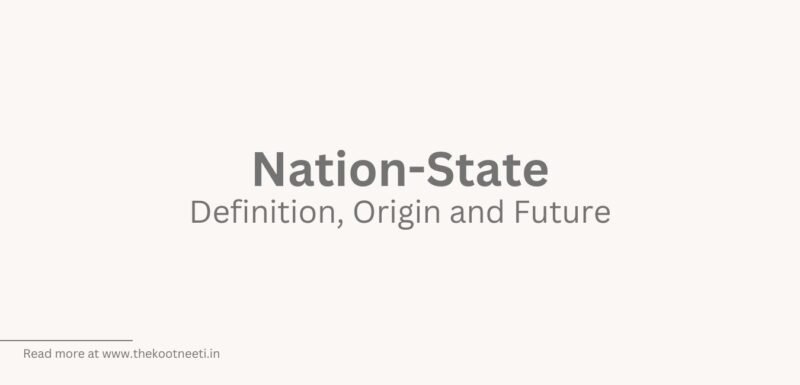Nation-State: Definition, Origin and Future

A nation-state is a sovereign state in which the government has control over a defined territory and a population that shares a common culture and identity. The concept of the nation-state is based on the idea that the state and the nation are coextensive, meaning that the boundaries of the state and the nation overlap and are essentially the same.
In a nation-state, the government represents the nation and is responsible for protecting and promoting the interests of the nation. The nation-state is also typically characterized by a centralized system of government and a single set of laws that apply to all citizens within its borders.
Nation-states are the dominant form of political organization in the modern world, and most countries are nation-states. However, there are also cases where the nation and the state do not overlap, such as in federal states where power is shared between a central government and smaller regional governments, or in multinational states where there are multiple nations within a single state.
Origin of Nation State
The concept of the nation-state is closely related to the idea of nationalism, which emerged in Europe in the 18th and 19th centuries as a political and cultural movement that sought to unite people with a shared language, culture, and history within a single political entity. The nation-state is a sovereign political entity that is composed of a specific nation or group of people who share a common identity and who are united within a defined territory.
The modern nation-state has its roots in the Treaty of Westphalia, which ended the Thirty Years’ War in Europe in 1648. The treaty recognized the sovereignty of individual states and established the principle of non-interference in the domestic affairs of other states, which became known as the Westphalian system. The Westphalian system established the nation-state as the dominant form of political organization in Europe and provided the foundation for the modern international system.
The future of Nation-State
There is ongoing debate about the future of the nation-state and the potential challenges and opportunities it may face in the 21st century. Some experts argue that the nation-state is facing significant challenges that may threaten its ability to function effectively as a political entity. These challenges include:
- Globalization: The increasing interconnectedness of the global economy and the rise of non-state actors such as multinational corporations and international organizations have led some to question the ability of the nation-state to maintain its sovereignty and control over its domestic affairs.
- Threats to national security: The proliferation of weapons of mass destruction, the threat of terrorism, and the impact of climate change are all challenges that may threaten the security of nation-states and their ability to protect their citizens.
- Demographic changes: The aging of populations in many developed countries and the influx of immigrants in others may challenge the ability of nation-states to maintain social cohesion and to provide for the needs of their citizens.
- Technological developments: The rapid pace of technological change and the emergence of new technologies such as artificial intelligence and biotechnology may present both opportunities and challenges for the nation-state.


















